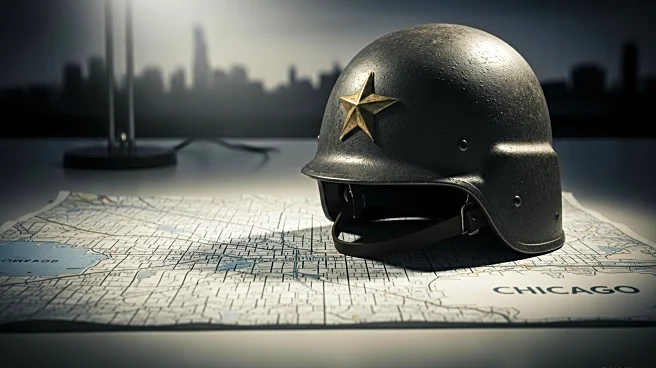What is the story about?
What's Happening?
Former Illinois National Guard Adjutant General Richard Hayes discussed President Trump's efforts to deploy troops to Chicago. Hayes, who led the Illinois Guard from 2015 to 2019, emphasized the legal obligations of troops to follow orders that are lawful. He explained the distinction between state and federal control of the National Guard, noting that when the Guard is federalized, control shifts from the governor to federal forces. Hayes highlighted the legal complexities involved in military support to law enforcement, governed by the Posse Comitatus Act, which prohibits military involvement in law enforcement unless the Insurrection Act is invoked.
Why It's Important?
The deployment of National Guard troops to U.S. cities, including Chicago, raises significant legal and operational questions. The distinction between state and federal control impacts how troops can be utilized, particularly in law enforcement roles. This situation underscores the balance between maintaining public order and adhering to legal constraints. The discussion by Hayes provides insight into the operational framework and legal boundaries that govern military deployments within the U.S., which is crucial for understanding the implications of such actions on civil liberties and governance.
What's Next?
The ongoing debate over the deployment of National Guard troops in U.S. cities may lead to further legal scrutiny and potential challenges. Stakeholders, including state governments and civil rights organizations, may seek clarity on the legal parameters of such deployments. The invocation of the Insurrection Act remains a pivotal factor that could alter the scope of military involvement in domestic affairs. Monitoring the legal and political developments surrounding these deployments will be essential for understanding their impact on governance and civil rights.

















